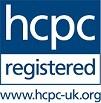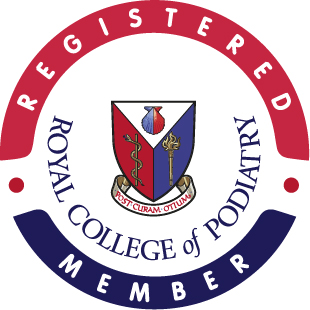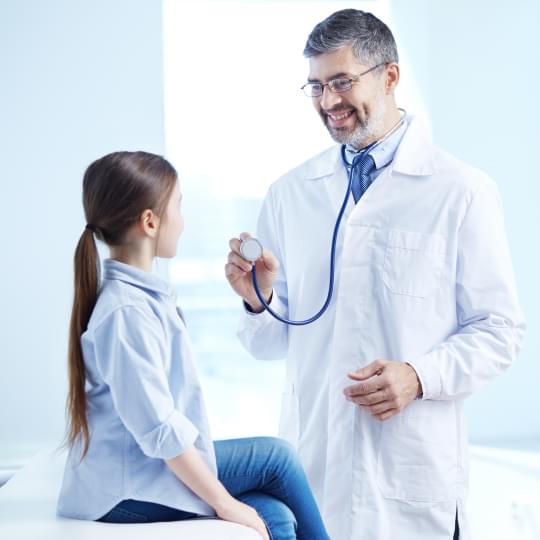Contact Us
Our Podiatry Clinic is at Spencer House, 3 Spencer Parade Northampton NN1 5AA. Tel 01604 422772



Book your appointment online above or ring me anytime on 07522 497872
Discover our top-ranked Podiatry Clinic, recognized for exceptional foot and ankle care. With highly skilled podiatrists and cutting-edge treatments, we specialise in diagnosing and addressing various foot conditions. From conservative therapies to surgical interventions, our clinic prioritises your well-being, ensuring optimal foot health and enhanced mobility. Experience our acclaimed services in a welcoming and esteemed environment. Fully qualified HCPC registered Practitioner.
The Foot Clinic Northampton
D.Fox BSc(Hons), DPodM, FAAFAS(USA), RSM, MRCPodM
3 Spencer Parade Northampton NN1 5AA
Tel. 01604 422772 or on my mobile/WhatsApp 07522 497872
Parking at the front.
Our Chiropodist in Northampton has a Degree in Podiatric Medicine and Regulated by The Health & Care Professions Council, HCPC. Mr Fox is also a member of The Royal College of Podiatry and The Royal Society of Medicine.
Nails, thickened and fungal
Corns and callus
Laser therapy for verrucas
Ingrowing toenail surgery
Laser treatment for fungal nails
Diabetic care and assessments
Sports injuries
All foot and lower limb related problems
We can offer you basic foot treatment in Northampton for nail cutting including fingernail cutting for the elderly, hard skin removal, callus and corn removal or itchy toes and itchy feet to more advanced treatments like toenail problems that require ingrowing toenail surgery for the removal of infected or ingrown nails. Laser treatment for fungal nail infections is available.
Shin Splits, knee pain and hip pain in sports injuries
Guna homeopathic injections for osteoarthritis in the foot or knee.
Ingrowing toenail surgery is performed under local anaesthetic, Nail surgery in Northampton is a permanent solution.
Laser Wart treatment or Laser Fungal Nail treatment. We have had great success with Laser Therapy for verrucas on the feet or treatment for warts on the fingers or anywhere on your body but we do offer other verruca treatments. There is acid treatment, electrocautery, dry needling for verrucas under local anaesthetic or verruca treatment and wart surgery under LA or a combination of the above. Our Podiatrist does not use Cryotherapy for verrucas due to poor results and you will find your GP no longer offers this treatment.
Cushioning for the feet, or Dermal fillers is an innovative method of introducing extra cushioning under tender areas of the foot, for example, under painful corns and areas where the fatty pad is less than normal. The filler used is a hyaluronic acid filler. Hyaluronic acid is already very abundant in the body. One of the functions of this is that it stimulates the body’s own production of collagen. The dermal filler is painlessly injected fairly superficially into the skin under local anaesthetic.
Eradicate corns
Help patients who have the need to wear high heels, wear them for longer
Help with reduced fatty padding on the soles of feet
Help deal with hammertoes
Dermal fillers can work where conventional podiatric attempts have failed in alleviating foot pain and negate the need to have padding stuck to the foot which can impede on hygiene and look unsightly.
There are many benefits associated with using dermal fillers as a method of pain relief in podiatry including increased mobility, provides an alternative to medication or even surgery and long lasting relief from painful symptoms therefore improving patient well-being.
Treatment for verrucas on child. Treatment for warts on childrens hands.
We see many patients with heel pain. Plantar Fasciitis, pronounced fash-e-i-tis is the most common. There are many other conditions affecting the heel like heel spurs or plantar calcaneal bursitis (Policemans heel), child pain in the heels (Sever's Disease) and many more.
Click here for more information about Plantar Fasciitis.
We can also offer custom made orthotics and steroid injections including anaesthesia, Guna Collagen injections in small joints and the knees or just advise on physiotherapy. Strapping is also available.
Skin Tag Removal in Northampton is available under local anaesthetic, ring for more information.
Children's Foot Problems. Insoles for children can be made especially for flat feet, intoeing or out-toeing, insoles for severs disease, insoles for low arches or high arches. Orthotics for children who play sports & more.
See below for more information and treatments.

Chiropodist Podiatrist in Wellingbrough, Kettering, Corby, Towcester, Milton Keynes, Daventry, Rothwell, Market Harborough, Bedford, Burton Latimer, Desborough, Raunds, Irthlingborough, Rushden, Kelmarsh
Our Podiatry Clinic is at Spencer House, 3 Spencer Parade Northampton NN1 5AA. Tel 01604 422772
You may just need regular nail cutting or have hard skin or need painful corn removal in Northampton. Or maybe a one off treatment?
Our Podiatrist Npton is the only one in Northampton offering Laser for verrucas & Warts.
Our Chiropody Clinic in Northampton has surgically removed over 2000 ingrowing toenails under local anaesthetic.

You will have your nails reduced with a nail drill the lasered with a YAG: Nd 532nm and 1062nm Q-Switch Laser.

If you have Diabetes you must have a Diabetic Foot Check to ensure you are not at risk.

We can treat genital warts with a combination of Laser & podophyllotoxin. Give us a call in confidence.

We can help with your painful bunions with orthotics, injection therapy or surgery.

Injection Therapy
We can offer you corticosteroid injections for painful joints, steroid injection for gout, heel pain or mortons neuroma.

Injection Therapy
Osteoarthritic joints can be injected with Ostenil to provide lubrication and to promote cartilage regeneration in synovial joints, big toe, ankle & knee. Course of 3 injections.

Injection Therapy
Ostenil Plus is double the strength of Ostenil and you only need one injection. Ostenil is a solution containing Hyaluronic Acid for the treatment of osteoartritis in the knee or osteoarthritis with a bunion or pain in other small joints or ankle also knee arthritis.

Injection Therapy
We can inject medical grade glucose in to the joint spaces and soft tissue to promote healing. Local anaesthetics are also used. The function of Guna is structual. It replaces, strengthens and protects and builds on the histological structure of the collagen fibres. Guna is a homeopathic medicine for use in small joints and knees for osteoarthritis and muscle pain.

All instruments are scrubbed.

All instruments are cleaned in an ultrasonic cleaner.

The instruments are then placed in the steriliser. This operates under pressure at 134 degrees Celsius and then they go through a drying process.

The instruments are the stored in an Ultraviolet UV Cabinet until needed.
Mr Fox Graduated with a Degree in Podiatry from Leicester University in 1996. He has worked in the NHS, Harrods of Knightsbridge and Private Practice and is Registered with the HCPC.
Mr Fox treats all foot and lower limb problems but specialises in minor surgery for ingrowing toenails and verrucas together with Laser Therapies for warts, verrucas and fungal nails.
History of Chiropody & Podiatry
chiropody as an area of professional practice within health care concerned with the care and treatment of disorders of the feet has had both ancient and modern elements in its development. Whilst
some health care professions (radiography and occupational therapy
amongst others) are products purely of the twentieth century, chiropody,
like dentistry is best understood as an older health-related craft reformed under
twentieth-century conditions. The forebears of modern-day chiropodists
were the itinerant corn-cutters of past centuries who plied their trade
at fairs, markets, and in the streets. Little is known in detail about
the history of corn-cutters, but by 1845 Lewis Durlacher, a leading
British practitioner, was drawing a distinction between the new
professional chiropodist and the humble journeyman cutter.
Durlacher
argued that the treatment of foot conditions should become a firmer
part of medical practice of his day, and that in particular those with
‘the requisite surgical information’ after examination should be granted
a license to distinguish them from untrained corn-cutters. His attempts
to create a trained and recognized new class of practitioner did not
come to fruition for nearly half a century, when a ‘Pedic Society’ was
founded in NY followed in GB in 1912 by the Society of Chiropodists. Foot care at this time was
becoming a major business area, which may have stimulated these
professional responses. The Scholl remedial footwear firm had developed
in the US, successfully responding to market needs, and had opened its
first London branch in 1910. British doctors of the day were generally
not interested in this area as part of their practice, and only a
dedicated few served as mentors, patrons, and examiners for the new
Society of Chiropodists. However, by 1923 its journal, The Chiropodist,
was presenting the new profession as a collateral branch of medicine in
line with Durlacher's earlier ambitions, drawing its scientific
principles into a neglected but now crucially important area of health
care practice.
The ambitions of the British chiropodists were
very much influenced in the 1920s by the general position of dentistry.
Dentists were trained, licensed surgical practitioners with a ‘body
site’ of their own, separate commercial premises under their own
control, and amicable relationships with other medical practitioners.
Although previously licensed by the Royal College of Surgeons, they had
attained self regulation in 1921 — but attempts by chiropodists to
follow this example with a parliamentary bill in 1928 was strongly
resisted by organized, professional medical lobbyists. The British
Medical Association's position was to oppose any other class of
practitioner outside the formal jurisdiction of the medical profession.
Chiropody was modestly defined in the bill as ‘the diagnosis and
medical, mechanical or surgical treatment of foot ailments such as
abnormal nails, bunions, corns, warts and callosities but not the
performance of operations for which an anaesthetic is required’, but
this was not enough to disarm extensive professional rivalries in the
inter-war years.
Nevertheless, after further decades of boundary
disputes with medicine, chiropody in Britain finally achieved state
registration or licensing in 1960, largely within the terms of the above
definition. In the meantime, podiatry had developed within chiropody,
as a specialized and more surgically ambitious area of bone surgery. The
Canadian province of Ontario.
for example, now specifically licenses podiatry as ‘cutting into
osseous tissues of the metatarsals and toes of the foot, including
osteotomies and joint surgery’ including associated diagnosis. This more
advanced type of practice is now internationally common and corresponds
with the earlier ambitions of the turn-of-the-century professional
modernizers and their vision of a collateral profession. As with other
one-time medical auxiliary occupations, chiropody training in recent
times has been incorporated into higher education, and now holds a
secure place in the broad medical division of labour as one of the
preventative and remedial health professions. Students are trained on
graduate programmes to offer treatments in the area of biomechanics, sorts medicine and bone surgery under local anaesthesia, in addition to the more
traditional concerns with corns, in-growing toenails, veruccas, and
local injections. The fully-trained professional group suffers, in its
own view, from unfair competition from untrained practitioners, and thus
like all professions in such circumstances tries to prohibit their
practice, but this claim in Britain at least has not so far been legally
successful. Arguably it is more likely that chiropody's next phase of
development will lie in even closer links with related medical,
surgical, and health professional areas, particularly as health policies
try both to contain health care costs and to support increasingly aged
populations. Developments in podiatry, however professionally important,
may remain a relatively minor part of chiropody's future compared with
its wider co-operation with GPs, dieticians, physiotherapists, and
others working in primary care services.
Gerry V. Larkin
Bibliography
Larkin, G. V. (1983). Occupational monopoly and modern medicine. Tavistock, London and New York.